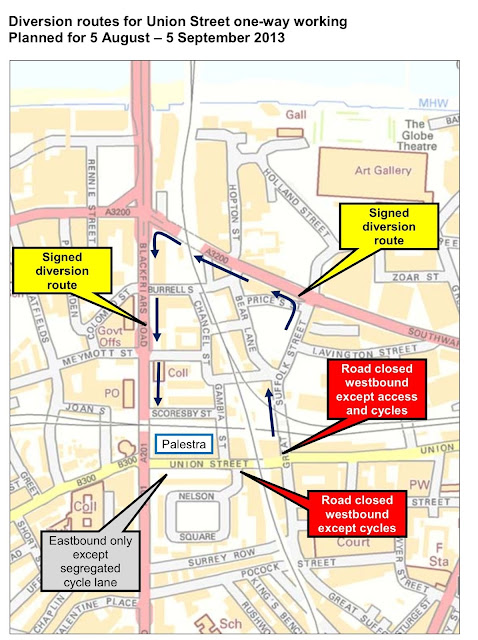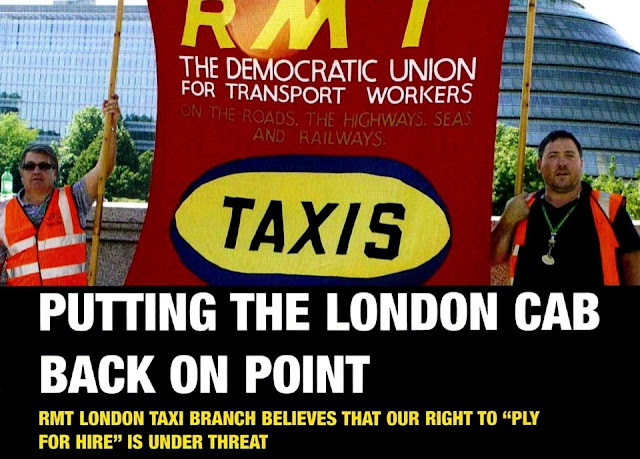What is Lobbying ?
Lobbying is about raising issues with and seeking to influence elected representatives. It can take many different forms and can be done by paid professional lobbyists or by grass roots activists and members of the public.
Lobbying of MPs can take place in Parliament when it is sitting or in an MPs constituency.
An MP should, and generally will, see you as a constituent rather than simply as a trade unionist and as such is meant to represent a constituent interest even if he or she does not agree with them.
It is important that you, your colleagues, friends, neighbours and family contact your MP on important issues and concerns, the more contact's an MP has on the same issue the more likely that it is that they will do something about it.
How do we lobby MPs in Westminster?
In general, constituents and RMT members tend to choose to lobby their MPs in Westminster as part of a coordinated lobby day at Parliament often organised by the RMT the TUC or others.
However, there is nothing stopping you working with members and officers in your region to organise your own lobby of Parliament.
Lobbies of Parliament usually take place between Monday and Thursday when Parliament is sitting with Tuesday and Wednesday afternoons been the most favoured times as they usually present the best opportunity to catch the maximum members of Parliament.
It is best to get in touch with your MP in advance of your visit Parliament, either in writing, by e-mail or by phone to make an appointment to see them on the day.
However, if this has not been possible or your MP has not gotten back to you there are procedures in place to try and get in touch with your MP without an appointment.
You will need to go to the main central lobby meeting area of the Houses of Parliament (Access is not normally allowed until after 2 PM) and ask at the desk to ”Green card” your MP, so-called because you are given a green card to fill in with both yours and your MPs details.
Parliamentary officials will then seek to get noticed to your MP that they have a constituent waiting to lobby them.
There is no guarantee that your MP will receive the message in time or be available to see you and you must sit and wait in central lobby for your MP to turn up or the clerk to give you a response.
Getting in touch with your MP
I can f you are not sure who your MP is then there are a couple of ways you can check this out:
Go to http://findyourmp.parliament.uk/ or via the “find your MP” link on the main Parliament website, all you need is your postcode.
The House of Commons information office and inform you who your MP is if you call them on (020) 7219 4272.
When you write or call your MP make sure you make clear they now you are a constituent as MPs are bound by Parliamentary rules to only help their own constituents.
At this stage, don't go into too much detail about what you want to see them about, just simply stating of concerns and use local examples of possible and relevant.
When you see your MP.
when you see your MP, start from the bases of assuming they know nothing about the issues you raise, make sure you clearly set out who you are, identify yourself as a constituent, where you work and or the local services you use that could be at risk.
Be sure to get the following points across in a clear, courteous and concise manner.
• Thank the MP for season you and establish how much time you have to talk to them.
• The background to the issue.
• How and why it impacts of you, use examples if you can.
• How it affects the MPs constituents, again use examples if you can.
• If possible, offer an alternative solution.
• Be specific on what your MP can do to help and what exactly you are asking them to do.
• Ask them to update you on what they do following your meeting.
What you can ask your MP to do in Westminster.
There are a number of things you can ask your MP to do to pursue your concerns in Parliament:
• Write to raise your concerns with the relevant government minister.
• Signed an early day motion (EDM), a short written statement that come raise awareness and support of an issue.
MPs also quite like to use EDM’s reform local press stories, so bear that in mind.
• Raise issues through asking and writing Parliamentary questions.
• Raise matters with the Prime Minister at Prime Minister's questions (MPs are chosen for this through a ballot you could ask your MP to put in for it.)
If they do not hold a government position you could ask your MP to put in for a backbench debate on a particular issue.
Again, this is decided by a ballot system but if successful a government minister will have to respond to the concerns represented in the debate.
After meeting your MP.
It is important that meeting your MP on this issue is just the start of it.
Following the meeting you can:
• Write or e-mail to thank you MP for the meeting, being careful to outline any agreed actions on both sides.
• Keep in touch with your MP and what they are doing in support.
• Feedback to fellow members in your workplace and local community.
• Don't forget to let the union's political team know how you get on so that they can also follow your meeting up with MPs.
• You could always invite your MP to come along to a branch meeting, or if that is difficult invite them to meet with a number of colleagues outside of the workplace.
Speak to your union about organising some sort of local press stunt or photo opportunity, you may want to involve your MP in this depending on the outcome of the meeting.
Lobbying the House of Lords.
Members of the House of Lords have an important role to play. It is offered in the Lords that the government loses a vote on legislation. Members attend the house on a voluntary basis and only a few have an office or any staff. A full list of Lords can be found that www.publications.parliament.uk/pa/id/idinfo.htm.
You can write to a member of the House of Lords the below address:
Name, Surname and title
House of lords,
London,
SW1A 0PW
www.rmtlondontaxibranch.co.uk
londontaxi@rmt.org.uk















